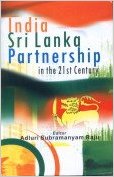India-Sri Lanka relations have witnessed a paradigm shift especially since the mid-1990s. The shift has taken place fundamentally in two key areas: politico-strategic and economic. Absence of Cold War hangovers, nonexistence of diplomatic irritants on the ethnic issue, and phenomenal growth in trade and investment ties were the principal reasons for improved bilateral relations. The book under review details the underlying causes for such a shift, how it happened, and the future problems and prospects. The 18 chapters are divided into six sections covering historical, political, economic, strategic, and social dimensions of relations between the two countries.
Some chapters stand out as highly informative. Nirupama Rao, with her hands-on experience as High Commissioner in Colombo, suggests various ways for improving the existing ‘win-win’ economic relations. P. Sahadevan, after analysing the existing policy dilemma in New Delhi, argues that ‘an ideal India [Sri Lanka] policy should combine “non intervention” with “active interest” in the conflict.’
In the analyses, however, Rajiv Gandhi’s assassination and the resultant change in equation between India and the LTTE is ignored. Devraj brings out the pertinent point of ‘inhuman policies’ of Indian and Sri Lankan governments that converted Indian Origin

